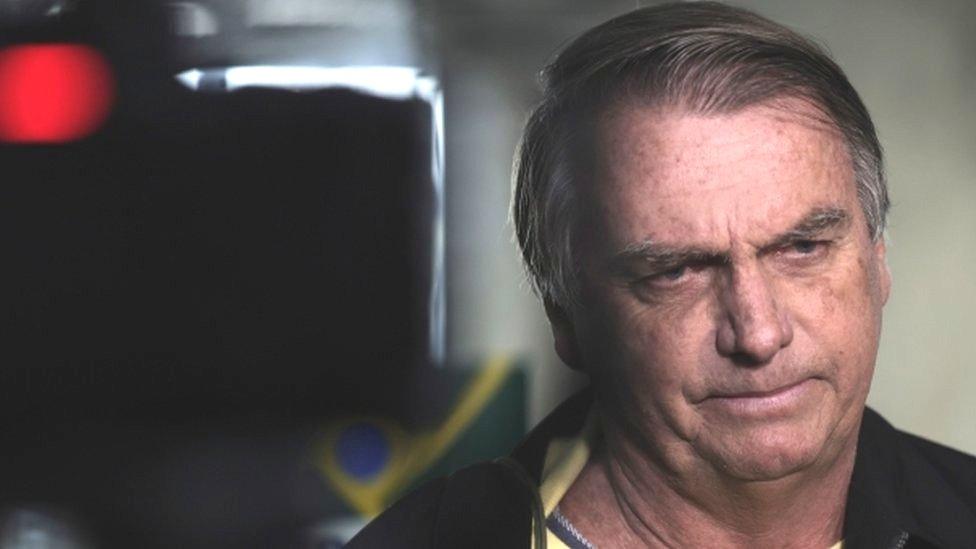Eight-year election ban for Brazil's Jair Bolsonaro
- Published

Brazil's Supreme Electoral Court has voted 5-2 to bar ex-president Jair Bolsonaro from running for office for eight years.
Mr Bolsonaro was found guilty of abusing his power ahead of last year's presidential poll.
He had been accused of undermining Brazilian democracy by falsely claiming that the electronic ballots used were vulnerable to hacking and fraud.
Mr Bolsonaro's lawyers are expected to appeal against the verdict.
They have argued that his statements had no bearing on the election result.
The ban is backdated to 2 October 2022, when the presidential election took place.
If the verdict is allowed to stand, Mr Bolsonaro will not be eligible to take part in the next presidential election in 2026, but will be able to run again in 2030.
He will also be barred from municipal elections due in 2024 and 2028.
Mr Bolsonaro called the decision a "stab in the back" and said he would keep working to advance right-wing politics in Brazil.
The case against the ex-president revolved around a speech he gave while he was still president in 2022.
On 18 July, he invited foreign diplomats to his residence in the capital, Brasilia, where he falsely claimed that the electronic voting machines used in Brazil were prone to being hacked and open to large-scale fraud.
Mr Bolsonaro maintained that he "simply explained how elections work in Brazil" and did not criticise or attack the electoral system.
But the speech came amid a polarising presidential campaign which saw Mr Bolsonaro being challenged for the top job by his arch-rival, left-winger Luiz In谩cio Lula da Silva.
The bitterly fought election went into a run-off on 30 October and was won by an extremely narrow margin by Lula.
Mr Bolsonaro never publicly acknowledged his defeat and left Brazil for Florida two days before Lula was sworn in as president.
His supporters, who refused to accept the outcome of the election, stormed Brazil's Congress, the presidential palace and the building housing the Supreme Court on 8 January.
Related topics
- Published3 May 2023